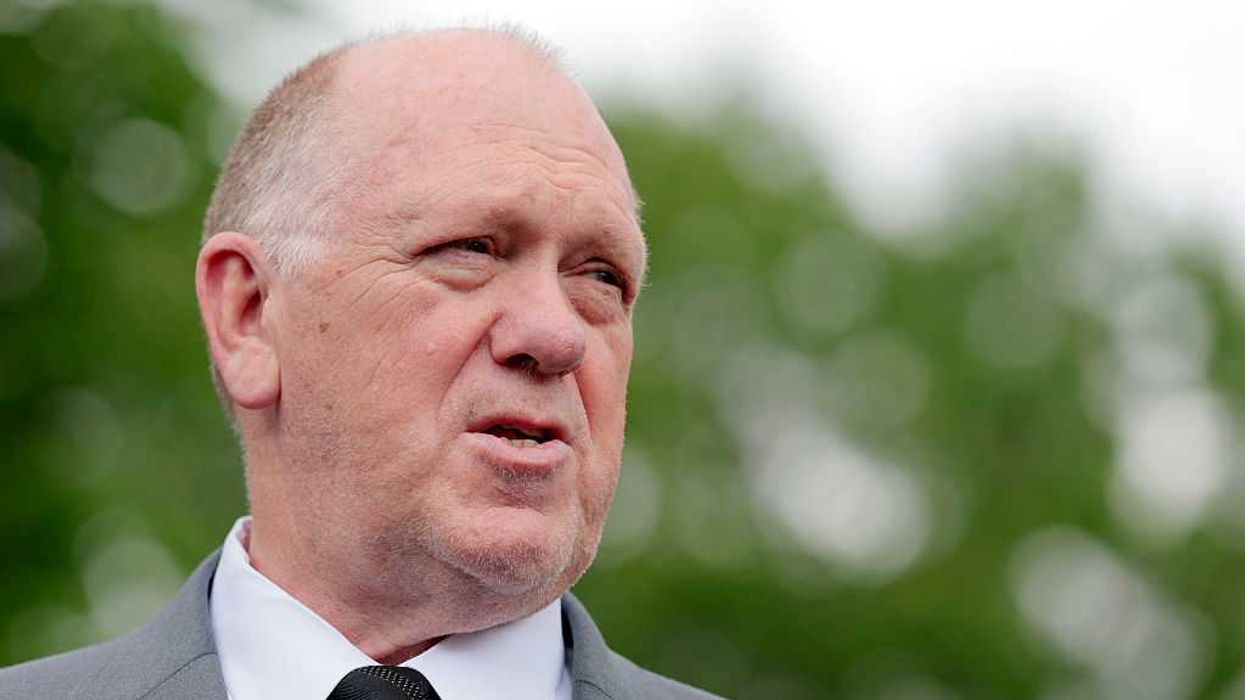The tragic suspected suicide of comedic giant Robin Williams has stunned the nation.
How could such a funny, delightful and engaging man take his own life? Everyone who knew him said that he did not act like a celebrity, he was just the guy next door who loved to chat with his neighbors and ride his bike around town. But under the pleasant demeanor, Williams suffered from severe depression. He had been in and out of rehab several times.
 This June 15, 2007 file photo shows actor and comedian Robin Williams posing to promote his film, "License To Wed" in Santa Monica, Calif. AP Photo/Reed Saxon, File
This June 15, 2007 file photo shows actor and comedian Robin Williams posing to promote his film, "License To Wed" in Santa Monica, Calif. AP Photo/Reed Saxon, File
Are we living in the age of depression? It is estimated that 60 million people in the U.S. suffer from depression: That's 17 percent of the population. Is this just coincidence or is some external force at work?
Following the stock market crash of 1929, America descended into the Age of Anxiety. As bank accounts were wiped out and stock market losses mounted, the unemployment rate skyrocketed and the mood of the country became one of tremendous anxiety. People were anxious about securing shelter, food and an unknown future.
World War II brought the productive resources of the U.S. into overdrive and lifted the country out of the Great Depression. Following the end of the war, the U.S. directed that productive capacity to the private sector. Consumer spending commenced its meteoric rise. There was nothing we couldn't accomplish, culminating with putting a man on the moon in 1969.
Today, it seems that we have forgotten about our astonishing ability to accomplish anything we set or minds to. The news is bleak. A decade of war in Iraq and Afghanistan; school shootings; riots sparked by police shootings; unemployment remains high; college graduates can't get a job; seniors can't make ends meet; the list goes on and on.
No wonder so many people are depressed.

Americans do not see a brighter future. The constant bombardment of negative news is taking its toll on the nation's psyche. Our children go to school and we wonder if they will come home. Congress is locked into a bitter battle of party politics where nothing is accomplished except better pay raises for its members.
The president is off vacationing in Martha's Vineyard while the world descends into chaos. Who is left to protect our country and provide a road map out of this mess?
No wonder so many people are depressed. I suggest that apathy is not the answer. If we don't become part of the process of renewal, then we are responsible for contributing to the decay.
Actors seem to get lost in their characters, and when they emerge from their roles they can't find themselves. Jonathan Winters, another great comedian, also suffered from depression. Are we losing ourselves to entertainment, celebrity worship and other devices to keep reality from intruding into our lives? Have we pushed God so far away that we don't need him anymore?
Secularism comes at a price. I can make the argument that with the rise in relativistic morality comes a rise in anxiety and depression. The more we push God out of the picture, the more depressing life becomes.
Atheist philosopher Burton Russell wrote in his book "A Free Man's Worship" that "only on the firm foundation of unyielding despair can the soul's habitation be safely built." Russell often contemplated suicide. Clearly the answer to a life of joy is not to yield to despair.
If we are afraid to embrace the love of God what then shall we embrace?
John Lawrence Allen, a nationally recognized legal expert, represents investors nationwide in securities arbitration. Mr. Allen’s second book, “Make Wall Street Pay You Back,” was just released. For more information visit www.MakeWallStreetPayYouBack.com.
–
TheBlaze contributor channel supports an open discourse on a range of views. The opinions expressed in this channel are solely those of each individual author.


 This June 15, 2007 file photo shows actor and comedian Robin Williams posing to promote his film, "License To Wed" in Santa Monica, Calif. AP Photo/Reed Saxon, File
This June 15, 2007 file photo shows actor and comedian Robin Williams posing to promote his film, "License To Wed" in Santa Monica, Calif. AP Photo/Reed Saxon, File






